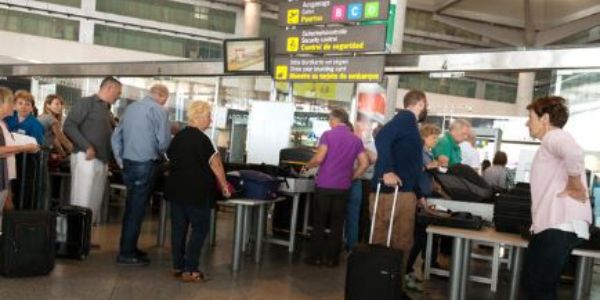Bananas are taken through airport security when you are taking a domestic or international flight. Travelers usually carry fruits or snacks for refreshment during long hours of flight.
All materials carried by the passengers are subjected to security screening before boarding. This is a common practice in almost all airports in the world. Fruits are also inspected to ascertain how safe they are. Fruits including bananas are screened to establish whether they contain particles that are deemed hazardous or poisonous.
Taking Bananas Through Airport Security
Passengers can carry bananas while fresh or when sliced and dried. Bananas for export are also subjected to security screening. Bananas for exports are thoroughly scrutinized to ensure conformity to the terms and conditions set by the destination country.
Each country has its unique operation guidelines for checking fresh or processed fruit imports. The fruits are checked at the point of entry to ensure that they are free from pests and diseases that may affect native plants.
Security screening of bananas carried by passengers
As a passenger, you can carry banana fruit in solid form. You can pack your sliced dried banana chips or ripened yellow banana.
Smashed banana, cocktail, or juice is not allowed. They are put in the same category of restrictions as liquids, gels, and aerosols.
The reason why bananas can be rejected at a security checkpoint in the airport is because of the high amount of potassium produced by ripe bananas. Security sensors are sensitive to potassium. Potassium is considered to be one of the slightly radioactive elements. It is 0.012% of the potassium that is radioactive.
It is estimated that one banana fruit can emit 0.01 millirem radiation. Ionizing radiation equipment used to screen radioactive particles at the airport can detect radioactive particles in bananas just as it can detect in explosives and flammable chemicals.
Bananas can also be identified by scanning machines as opaque objects. Opaque objects form black-shaded regions in the scan. This will force the security personnel to search your luggage and remove the banana. Other objects that appear as opaque x-ray objects include glass, wood, metal, and crystals.
Bananas’ radioactive sensitivity coupled with the x-ray opaque object it portrays is enough reason to have your bananas confiscated at the airport.
When taking an international flight, it is necessary to understand whether the country you are traveling to is allowing banana fruit from another country or not. Some countries have stringent measures not to allow any fresh fruit.
An example is the United States of America which prohibits the movement of many agricultural products from Hawaii to the U.S. mainland including most fresh fruits and vegetables. This is because these items are perceived to be potential harbors of invasive pests and diseases. A single piece of fruit carrying an invasive pest or disease can cause loss to the tune of millions of dollars and may call for expensive eradication measures.
Security check of export bananas at the airport
Bananas for export are subjected to international rigorous competitive inspection procedures. Each country has its own set of standards that must be met before allowing banana imports. Food and Agriculture Organization, a branch of the United Nations has set universal regulatory measures that must be adhered to by all companies involved in banana imports or exports.
These measures touch on the handling of bananas at airport export centers. The regulations also explain the type of bananas to be exported.
‘’Only bananas of the varieties Veimama, Gros Michel or Cavendish of the species Musa acuminata shall be accepted,’’ states a section of the regulation.
‘’Bananas shall be three-quarters full, free from bruising, twisted stems or any form of damage which, in the opinion of an inspector, may lead to deterioration during transit; no bananas shall have more than 10 percent of the surface affected by scab moth or other damage; bananas must be normal in shape and shall not be less than 5 inches in length (including the stalk when measured straight) or such lesser length as the Board may from time to time prescribe by notice in the Gazette; bananas must be in fresh, firm condition at all times; be accepted,’’ states a section of the regulation’’ adds another section.

